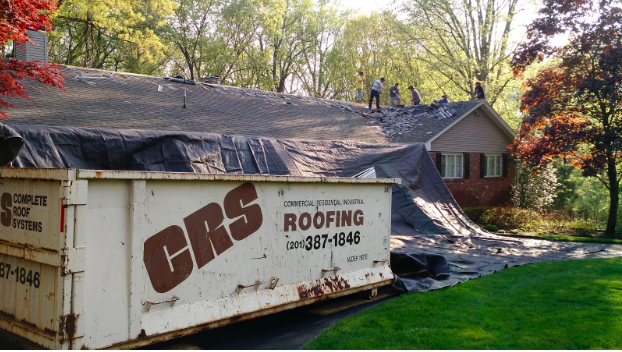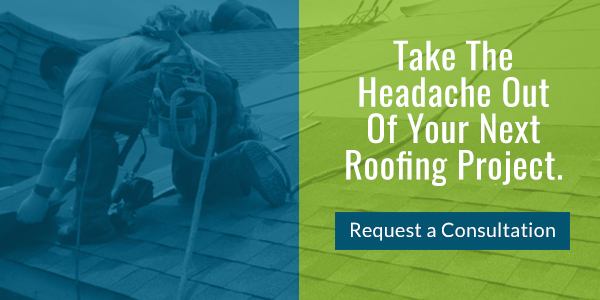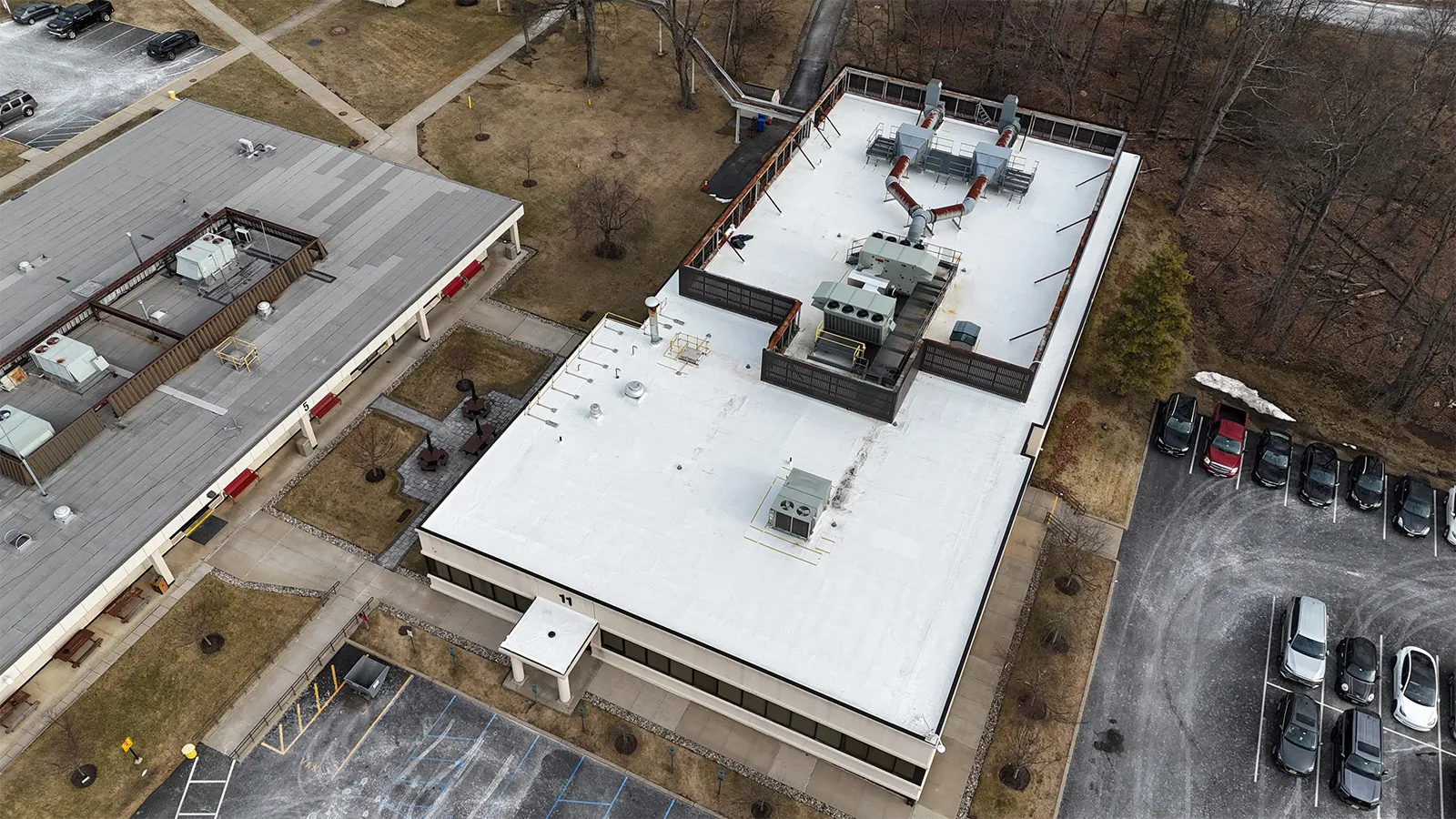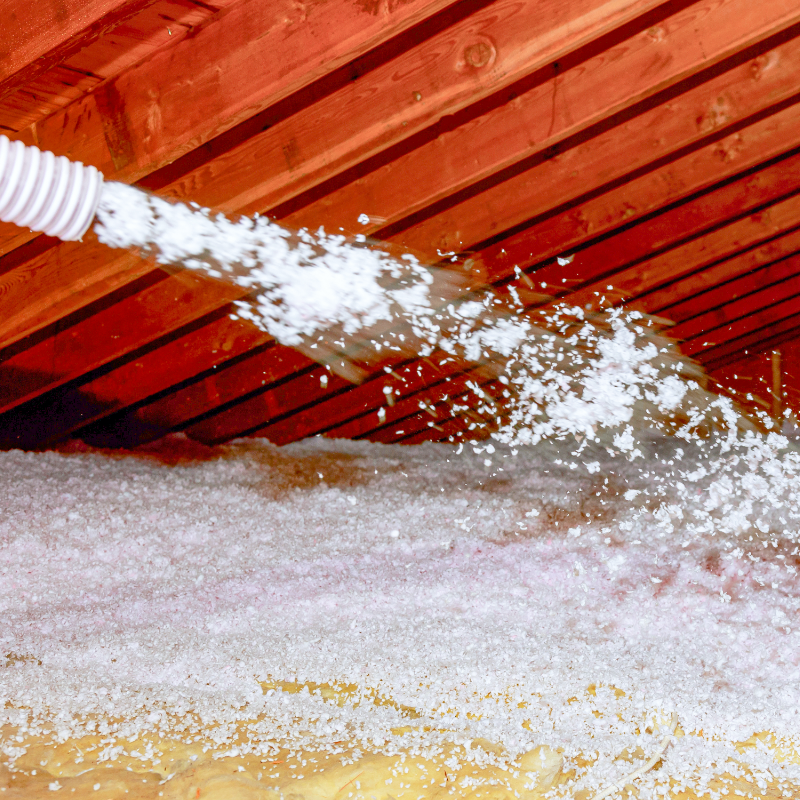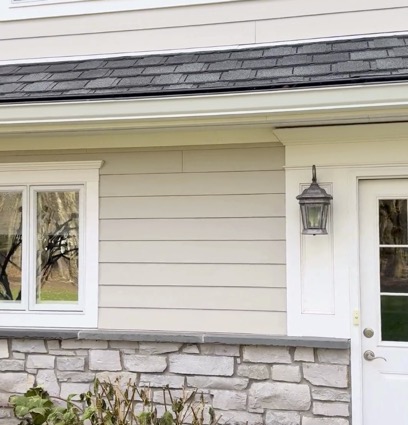Since today’s highest quality shingles are better than ever, a new roof may very well last much longer than your current one. When someone asks, “How many years does a roof last?,” the answer is often, “Longer than ever before.”
Longevity of Asphalt Shingle Roofs
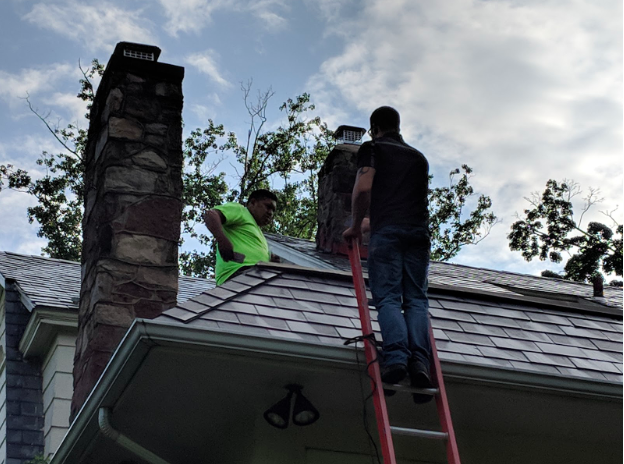 If you want a roof that lasts for many years, choose the highest quality materials installed by a factory-certified roofing contractor. Trust roofers certified by industry leaders like GAF and Owens Corning to install your new roof up to specifications.
If you want a roof that lasts for many years, choose the highest quality materials installed by a factory-certified roofing contractor. Trust roofers certified by industry leaders like GAF and Owens Corning to install your new roof up to specifications.
Architectural vs. three-tab shingles
In general, thicker architectural shingles will last longer than thinner three-tab shingles. In turn, ultra-premium architectural shingles often last longer than standard varieties. The durability of architectural shingles is due in part to the lamination process – a layer of tough fiberglass is sandwiched between two layers of asphalt. By contrast, three-tab shingles consist of a layer of fiberglass simply embedded in the asphalt.
In the past, three-tab asphalt shingle roofs typically lasted 12-20 years. How many years does a roof last if architectural shingles are used? Many of today’s architectural shingle roofs should last 25, 30 years or more.
In fact, some major roofing manufacturers like GAF will warranty a roof installed by one of their factory-certified contractors for up to 50 years. There are also lifetime warranties good for as long as your own your home. In some instances, they are transferable to the next owner.
Advanced features
Look for features that will extend the effective life of your roof. For example, a warrantied wind rating of 130 mph or more is appropriate in the Tri-state region. Also, consider cool roof technology that can reduce energy costs and extend product life. Special highly reflective granules send more of the sun’s UV rays back into the atmosphere.
Some of today’s shingles even offer protection against algae streaking. For example, shingles featuring GAF’s StainGuard Plus Time-Release technology come with a 25-year warranty on blue-green algae.
Things that Reduce a Roof’s Longevity
Ask long-term residents of northern NJ neighborhoods how long their roofs lasted, and you’ll get very different answers. One roof might protect a home for 50 years, while another one might only last 10 years. There are many reasons for this disparity. Let’s look at some of the things that shorten the lifespan of a residential roof in the Tri-state area.
Substandard materials
Inferior roofing materials may substantially shorten a roof’s effective life. Since shingles vary in quality, it is wise to pay attention to the type and the brand your roofer is using. For example, GAF, Owens Corning and Tamko all manufacture highly rated shingles.
Sub-standard felt or the wrong sheathing may also shorten a roof’s lifespan. In general, shoddy materials increase the probability of leaks. Sometimes, water infiltration is so widespread that a full roof replacement is the only sensible option.
Improper installation
It is very important to entrust your roof replacement to a reputable, factory-certified roofing contractor. Shoddy installation may dramatically reduce your roof’s longevity. For example, if nails are not properly driven through the reinforced strips on shingles, they are more prone to coming loose in high winds. Improperly installed flashing is another source of trouble.
Excess heat
Today’s asphalt shingles are engineered to withstand New Jersey’s weather extremes for many years. However, it is important to maintain good roof ventilation so the underside of your roof is not subject to excess heat and moisture. Regular inspections will ensure that your vents remain clear of debris.
In addition to the conditions above, altitude, wind elevations, the pitch of the roof and even valleys and facets can affect the longevity of the roof.
Tips for Making Your Roof Last
Modern asphalt shingle roofs are designed to survive New Jersey weather extremes for many years. However, it always important to be proactive about roof inspections and maintenance.
Get regular roof inspections
Semi-annual roof inspections in the spring and the fall catch emerging problems while they are easier to address. Missing shingles, damaged shingles, moss growth, broken flashing should all be addressed early on.
Do routine maintenance
It is ideal to have professionals perform roof maintenance when these spring and fall inspections occur.
Clean gutters
Ideally, you want to clean your gutters in the spring and fall. It is particularly important to have clean gutters going into winter to avoid water backups that may turn into destructive ice dams.
A modest investment in foam inserts, surface tension hoods or mesh-screen caps can help, although some debris removal is still needed from time to time.
Remove debris
Debris can build up anywhere on your roof, stopping water from draining away. It’s a little like those dams across New Jersey streams built by beavers. Twigs, branches and leaves combine to obstruct water flow, leading to standing water that saturates shingles.
Eliminate moss buildup
Many New Jersey roofs are shaded by towering, mature trees. Moss often grows in shady spots that remain moist too much of the time. Sometimes, moss mats may grow until they are several inches thick. Underlying shingles may rot when they remain wet for long periods.
Manage overgrowth
Many things that threaten a roof’s longevity come from one source – nearby trees. Excess shade, accumulations of leaves and falling branches can all be managed to a degree by cutting back branches, particularly those that hang right over your roof.
Contact Us Today
When you ask, “How many years does a roof last?,” you want to partner with a certified local contractor who is dedicated to the answer, “As long as possible!”
CRS is a GAF Master Elite Contractor who installs and maintains some of the best roofing systems in New Jersey. Ask us about the attractive terms of GAF’s Gold Pledge Warranty.
We are a full-service roofing company dedicated to meeting every roofing need, from inspections and routine maintenance to emergency repairs and complete roof replacements. To learn more, or to schedule a no-obligation visit by our certified roof inspector, please contact us today!

